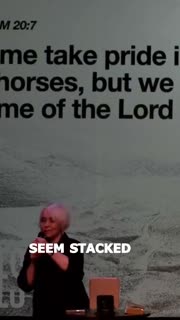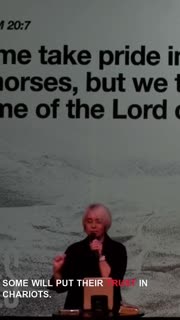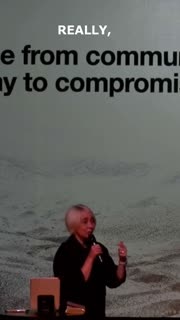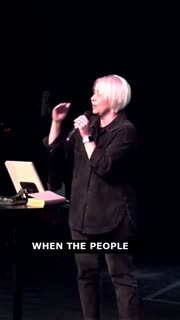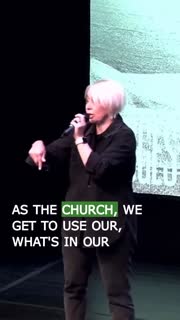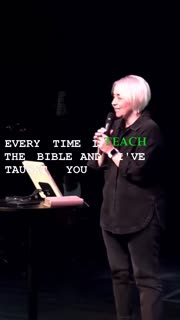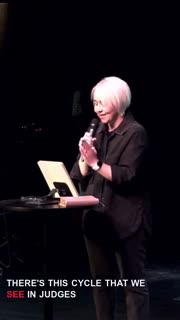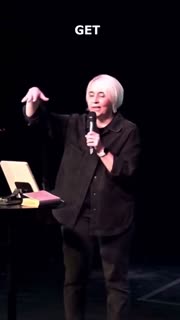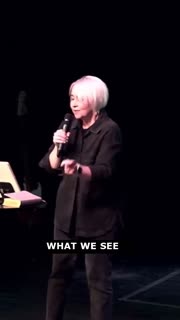Purposeful Living: Lessons from Judges and Deborah
Summary
### Summary
Today, we delved into the book of Judges, a challenging yet profoundly insightful part of the Bible. The central theme revolves around God's people being in a place for a purpose, a thread that runs from Genesis through to Judges. We explored how God consistently tries to bring His people back to their intended purpose, despite their recurring disobedience and compromises with surrounding cultures. Judges is a stark contrast to the victorious narrative of Joshua, highlighting the consequences of Israel's compromises and disobedience.
We focused on the cyclical nature of sin and redemption in Judges, where the Israelites repeatedly fall into sin, face oppression, cry out to God, and are delivered by judges raised by God. This cycle happens six times, leaving the story seemingly incomplete, pointing towards the ultimate deliverance through Jesus Christ, the seventh and final judge.
We then examined the story of Deborah, the only female judge, who led Israel with wisdom and faith. Despite being distant from the immediate oppression, Deborah's heart was stirred for her people, leading to a strategic military victory against the Canaanites. This victory was a testament to God's power, even when the odds were stacked against Israel.
Deborah's story, along with Jael's decisive action against Sisera, underscores the importance of using what is in our hands to fulfill God's purposes. Their names, meaning "honeybee" and "mountain goat," symbolically represent the promised land flowing with milk and honey, showing how their actions brought peace and prosperity to Israel for a generation.
Finally, we connected this biblical narrative to our mission with World Orphans, emphasizing the importance of community and using our resources to support the vulnerable. By doing so, we can change lives and bring about God's justice and righteousness in the world.
### Key Takeaways
1. People, Place, and Purpose: Throughout the Bible, God places His people in specific locations for divine purposes. This theme is evident from Genesis to Judges, where God continually calls His people back to their intended purpose despite their disobedience. Understanding this helps us see our own lives as part of God's larger narrative, where we are placed for a purpose. [48:50]
2. The Sin Cycle: Judges highlights a recurring cycle of sin, oppression, repentance, and deliverance. This cycle, repeated six times, points to the need for a final, complete deliverance through Jesus Christ. It reminds us of the importance of repentance and the hope we have in Christ's ultimate victory over sin. [55:25]
3. Faith in Adversity: Deborah and Barak's story teaches us that faith in God can lead to victory even when the odds are against us. Their trust in God's strategy, despite being outnumbered and outgunned, shows that divine wisdom and faith can overcome any obstacle. [01:04:39]
4. Community and Accountability: The story of Heber and Jael illustrates the dangers of isolation and compromise. Heber's distance from his community led to compromise, while Jael's decisive action for Yahweh brought victory. This underscores the importance of staying connected to our faith community for support and accountability. [01:12:46]
5. Using What's in Our Hands: Jael's use of a tent peg to defeat Sisera highlights the power of using what we have for God's purposes. This challenges us to consider what resources and talents we have at our disposal and how we can use them to further God's kingdom and bring about justice and righteousness. [01:16:20]
### YouTube Chapters
[0:00] - Welcome
[48:16] - Introduction to Judges
[48:50] - People, Place, and Purpose
[50:27] - The Dark Sequel of Judges
[51:10] - Compromise and Disobedience
[52:15] - No King, No Order
[53:13] - Covenant Breaking and Judges
[54:31] - The Sin Cycle
[55:25] - Deliverance and Peace
[57:00] - The Seventh Judge: Jesus
[57:51] - Deborah: A Unique Judge
[59:05] - Deborah and Barak's Faith
[01:03:10] - Outnumbered but Victorious
[01:04:39] - Trusting God's Strategy
[01:07:18] - Leadership Together
[01:08:36] - Going Higher for Perspective
[01:10:04] - God's Deliverance
[01:12:46] - Community and Compromise
[01:16:20] - Using What's in Your Hands
[01:19:06] - Milk and Honey: The Promised Land
[01:20:31] - World Orphans: Changing Lives
[01:27:22] - Invitation to Join the Mission
[01:29:47] - Closing Remarks
Study Guide
### Bible Reading
- Judges 4:1-24 (The story of Deborah and Barak)
- Judges 5:1-31 (The Song of Deborah and Barak)
- Psalm 20:7 ("Some trust in chariots and some in horses, but we trust in the name of the Lord our God.")
### Observation Questions
1. What was the cyclical pattern of behavior that the Israelites exhibited in the book of Judges? ([54:31])
2. How did Deborah demonstrate her leadership and faith in the story? ([57:51])
3. What was Barak's response to Deborah's command from God, and what does this reveal about his character? ([59:05])
4. How did Jael contribute to the victory over Sisera, and what did she use to accomplish this? ([01:00:54])
### Interpretation Questions
1. What does the cyclical nature of sin and redemption in Judges teach us about human nature and God's response to it? ([54:31])
2. How does Deborah's role as a judge and prophetess challenge traditional views of leadership in the Bible? ([57:51])
3. In what ways does Barak's insistence on Deborah's presence reflect his faith or lack thereof? How does this compare to other biblical examples of faith? ([59:05])
4. What is the significance of Jael using a tent peg to defeat Sisera, and how does this reflect the theme of using what is in our hands for God's purposes? ([01:16:20])
### Application Questions
1. Reflect on the theme of "People, Place, and Purpose." How do you see God's purpose in your current place and community? ([48:50])
2. The sermon highlighted the importance of community and accountability. How can you stay more connected to your faith community to avoid isolation and compromise? ([01:12:46])
3. Deborah and Barak's story shows faith in adversity. Can you recall a time when you had to trust God's strategy despite the odds? How did it turn out? ([01:04:39])
4. Jael used what was in her hands to fulfill God's purpose. What resources or talents do you have that you can use to further God's kingdom? ([01:16:20])
5. The sermon connected the biblical narrative to the mission with World Orphans. How can you use your resources to support the vulnerable in your community or globally? ([01:20:31])
6. Deborah's heart was stirred for her people even though she was distant from the immediate oppression. Is there a situation or group of people that God is stirring your heart for? How can you get involved? ([01:05:56])
7. The story of Deborah and Jael symbolizes the promised land flowing with milk and honey. How can you bring peace and prosperity to your community through your actions? ([01:19:06])
Devotional
Day 1: Placed for a Purpose
God places His people in specific locations for divine purposes. This theme is evident from Genesis to Judges, where God continually calls His people back to their intended purpose despite their disobedience. Understanding this helps us see our own lives as part of God's larger narrative, where we are placed for a purpose. [48:50]
"And the Lord said to Abram, 'Go from your country and your kindred and your father's house to the land that I will show you. And I will make of you a great nation, and I will bless you and make your name great, so that you will be a blessing.'" (Genesis 12:1-2, ESV)
Reflection: Think about where you are in your life right now. How can you see God's purpose in placing you in your current situation or location?
Day 2: The Cycle of Sin and Redemption
Judges highlights a recurring cycle of sin, oppression, repentance, and deliverance. This cycle, repeated six times, points to the need for a final, complete deliverance through Jesus Christ. It reminds us of the importance of repentance and the hope we have in Christ's ultimate victory over sin. [55:25]
"And the people of Israel did what was evil in the sight of the Lord and served the Baals. And they abandoned the Lord, the God of their fathers, who had brought them out of the land of Egypt. They went after other gods, from among the gods of the peoples who were around them, and bowed down to them. And they provoked the Lord to anger." (Judges 2:11-12, ESV)
Reflection: Identify a recurring sin in your life. How can you take steps towards genuine repentance and seek God's deliverance today?
Day 3: Faith in Adversity
Deborah and Barak's story teaches us that faith in God can lead to victory even when the odds are against us. Their trust in God's strategy, despite being outnumbered and outgunned, shows that divine wisdom and faith can overcome any obstacle. [01:04:39]
"And Deborah said to Barak, 'Up! For this is the day in which the Lord has given Sisera into your hand. Does not the Lord go out before you?' So Barak went down from Mount Tabor with ten thousand men following him." (Judges 4:14, ESV)
Reflection: Think of a current challenge you are facing. How can you trust in God's strategy and wisdom to overcome this obstacle?
Day 4: Community and Accountability
The story of Heber and Jael illustrates the dangers of isolation and compromise. Heber's distance from his community led to compromise, while Jael's decisive action for Yahweh brought victory. This underscores the importance of staying connected to our faith community for support and accountability. [01:12:46]
"Not neglecting to meet together, as is the habit of some, but encouraging one another, and all the more as you see the Day drawing near." (Hebrews 10:25, ESV)
Reflection: Are you staying connected to your faith community? What steps can you take to strengthen your ties and seek accountability?
Day 5: Using What's in Our Hands
Jael's use of a tent peg to defeat Sisera highlights the power of using what we have for God's purposes. This challenges us to consider what resources and talents we have at our disposal and how we can use them to further God's kingdom and bring about justice and righteousness. [01:16:20]
"But Moses said to God, 'Who am I that I should go to Pharaoh and bring the children of Israel out of Egypt?' He said, 'But I will be with you, and this shall be the sign for you, that I have sent you: when you have brought the people out of Egypt, you shall serve God on this mountain.'" (Exodus 3:11-12, ESV)
Reflection: What resources or talents do you have that you can use for God's purposes? How can you start using them today to make a difference?
Quotes
### Quotes for Outreach
1. "When the odds seem stacked against you, when physically it looks like you are way on the losing side, there is a God in heaven who can totally flip the script. There is a God in heaven who can give you a strategy that has you fight an enemy that looks so much bigger than you, more powerful than you in the physical realm it looks like they could win, but oh my goodness with the Lord on your side what can he do? He can do incredible things." [01:04:39] (27 seconds)
2. "Some will put their trust in chariots. And trust me, it's easier sometimes to put your own trust in the things that you see. But you're invited. The invitation is always to be invited into a better story and a bigger story. That even though it looks a certain way, the Lord goes, where do you see what I can do with my name in the mix of everything? He is so good." [01:05:10] (21 seconds)
3. "Community really, really matters. It's what keeps you and I on fire for Jesus. It's what keeps you and I on track, not distant, not a hundred miles away. And trust me, I know when we are journeying really difficult things, it is so easy to isolate ourselves. Because it's just too awkward, right? It is so easy to stick the duvet over your head and go, I'm not going to bother." [01:13:10] (23 seconds)
4. "What happens when the people of God start to speak up? What happens when the people of God live out the message? What happens when the people of God live out their calling, purpose, obedience, and using what's in your hand to bring about the purposes of God, not just using what's in your hands to make yourself comfortable, right? Because your wee world's fine." [01:18:45] (20 seconds)
5. "As the church, we get to use our, what's in our hands, but we get to use our voice to be walking Bibles, to change someone's story, to not be so distant from it. Because sure, this doesn't affect us. But this story in Judges is like, no, it should. These are your brothers and sisters. This is your story. This is your story. This is your story." [01:28:37] (19 seconds)
### Quotes for Members
1. "Every time I teach the Bible And I've taught you the Bible And I've taught here before Is I have these three things that I see As this massive common thread in the Bible If you could talk about what the story is about It's about God's people Being in a place for a purpose, right We see that right at the beginning in Genesis Where God puts his people in a garden So we see Adam and Eve in a place And the purpose is for them to rule and reign Out of that place of being in the Lord's presence." [48:50] (32 seconds)
2. "Joshua had done something incredible Before his death At the end of Joshua The book of Joshua You see him renew the covenant vows He's calling the nation back to holiness He's trying to get them to remember Who they are Set apart Set apart people To be in a place But there's a purpose to them being those people And it says consistently throughout this book That they break covenant With Yahweh Multiple times." [53:13] (30 seconds)
3. "There's this cycle that we see in judges This is it here We originally called this the sin cycle In our church And our pastor was like Can we not be a bit more positive And call it the grace cycle? Because, you know, glass half full and all that But there's this cycle that happens So you'll see it on the screen That the people commit sin They break covenant with Yahweh They fail to keep their terms Of the agreement that they had made with God." [54:31] (25 seconds)
4. "Whenever you're up, you get to see things from a totally different vantage point, don't you? Whenever you're up higher, you get to actually visibly see where the enemy is, what direction they're coming. And it actually is a very clever battle plan, when you think about it. Whenever you don't know, when the odds are stacked against you, what is the strategic battle plan? It's go up the mountain." [01:07:18] (20 seconds)
5. "What we see in this story, as much as this couple were distant, what we see with the wife is the wife suddenly has this moment of, I'm on the wrong side. I am on the wrong side. And so whilst her husband has compromised his position, and is basically having a covenant with the enemy, she then realizes, I need to dedicate this to Yahweh. I need to go back to Yahweh. I need to fight for the faith here. I need to make covenant with Yahweh." [01:15:20] (28 seconds)
